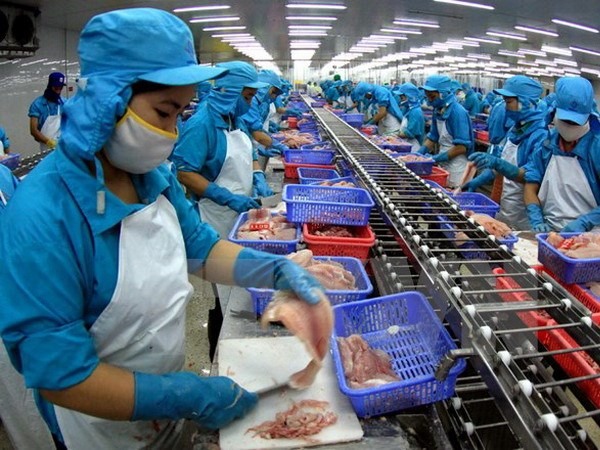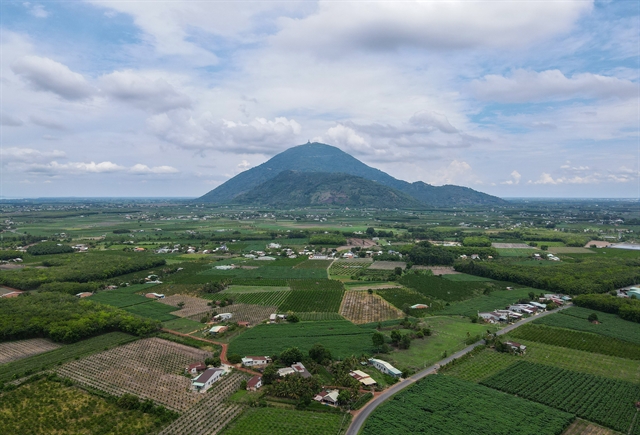 Economy
Economy

Vietnamese businesses have not yet taken full advantage of the potential to create high added value with low cost in the production chain, said Deputy Regional Managing Director of the US-ASEAN Business Council in Vietnam, Vũ Tú Thành.
 |
| A tra (catfish) processing line at the Southern Fisheries Industry Company Ltd., in Trà Nóc II Industrial Park, Cần Thơ City. — VNA/VNS Photo Duy Khương |
CẦN THƠ — Vietnamese businesses have not yet taken full advantage of the potential to create high added value with low cost in the production chain, said Deputy Regional Managing Director of the US-ASEAN Business Council in Việt Nam, Vũ Tú Thành.
Thành spoke at a workshop held in the Mekong Delta city of Cần Thơ, which focused on trade facilitation and promoting small and medium enterprises (SMEs) to join the global value chain.
The workshop was attended by more than 240 leaders and senior officials from the Ministry of Industry and Trade, General Department of Customs and small and medium enterprises (SMEs) nationwide.
The workshop aimed to implement the Memorandum of Understanding (MoU) signed between the US-ASEAN Business Council and the Vietnam Chamber of Commerce and Industry (VCCI), providing SMEs with the information and skills to participate in the global value chain effectively.
The participants discussed the role of Free Trade Agreements (FTAs) and customs reforms in facilitating trade in Việt Nam, trade facilitation clauses in the Law on Foreign Trade Management, the importance of logistics services and the application of technology in trade promotion.
Thành said that although Việt Nam was considered by many international organisations as having high potential in terms of investment, only 21 per cent of SMEs in the country were involved in global supply chains.
“This figure is very low compared to the average of 46 per cent among ASEAN countries,” said Thành.
The linkage among enterprises is not tight. Thus, SMEs in Việt Nam are less likely to benefit from the spillover effect of FDI enterprises through technology transfer, knowledge and productivity improvement,” he added.
According to Director of the Vietnam Chamber of Commerce and Industry office in Cần Thơ, Võ Hùng Dũng, another difficulty in joining the global value chain for SMEs is that they have low finance and weak technology, meanwhile access to capital and trade finance is still limited due to their insufficient financial resources to participate in the global supply chain.
They also lack skilled labourers to participate in high-added value areas such as processing, distribution (retail) and marketing.
At the workshop, many participants agreed that to overcome these challenges, the Government should step up the reform of institutions and improve the business investment environment, creating a breakthrough in the development of business and the economy. Enterprises should actively seek market information, potential industries and international standards, on which they can set up long-term development plans.
In addition, businesses must promote links to take advantage of each enterprise, enhancing the ability to supply and implement contracts of great value and gradually occupy the market. They must also actively co-operate with banks, investment funds and training institutions to raise capital, improve the quality of human resources and upgrade technology.
Trương Quang Hoài Nam, Deputy Chairman of Cần Thơ People’s Committee, said that as a dynamic economic centre in the South West region, Cần Thơ City would be a pioneer in production and export of hi-tech, value added and new products.
“We will attach importance to supporting and encouraging enterprises to renew their technologies and equipment, and improve their product models and designs so as to meet the demands of the market,” said Nam.
In addition, he said the city would promote trade promotion activities to expand the market and simplify the export procedures for businesses, helping them reduce production costs and lower prices.
"Achieving these goals will not only drive SMEs in the Mekong Delta to effectively participate in the global supply chain, but also help the region become a destination for big global investors, thereby creating motivation for other localities across the country,” said Nam. — VNS




